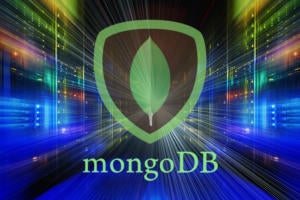Databases
Database | News, how-tos, features, reviews, and videos

Oracle CloudWorld 2023: 6 key takeaways from the big annual event
Generative AI was the watchword at CloudWorld 2023, as Oracle rolled out a new API-led AI service and updates to Database 23c, MySQL HeatWave, Fusion Cloud applications, and other products.

Oracle’s MySQL HeatWave gets Vector Store, generative AI features
The new generative AI capabilities and the Vector Store are currently in private preview.

Oracle’s Database 23c gets vector search to underpin generative AI use cases
The semantic search capabilities added to the database offering include a new vector data type, vector indexes, and vector search SQL operators.

DataStax’s new JSON API targets JavaScript developers
The new API, which will be made available through DataStax’s Stargate, will allow JavaScript developers to leverage Astra DB as a vector database for their large language model (LLM), AI assistant, and real-time generative AI projects....

A deep dive into caching in Presto
Understand the caching mechanisms for the popular distributed SQL engine and how to use them to improve query speed and efficiency.

Kinetica offers its own LLM for SQL queries, citing security, privacy concerns
Kinetica's self-developed large language model, designed to enable SQL queries from natural language prompts in its relational database, targets security-sensitive customers including US government defense organizations.

4 key new features in PostgreSQL 16
Postgres 16 highlights include updates around privilege administration, logical replication, performance improvements, and comprehensive monitoring features. Here is a breakdown.

Teradata adds ask.ai generative AI assistant to VantageCloud Lake
Enterprises will be able to use the ask.ai natural language assistant to ask questions about their data from within Teradata’s multicloud analytics platform.

InfluxDB Clustered targets on-premises time-series database deployments
InfluxDB Clustered is an open source, distributed time-series database alternative to InfluxDB Enterprise that has been built on the company’s next-generation time-series engine that supports SQL queries.

Prisma.js: Code-first ORM in JavaScript
Get a hands-on tour of the leading JavaScript object-relational mapping tool, which you can use with MongoDB and traditional databases.

What SQL users should know about time series data
Four key considerations to keep in mind when you need a database designed for analytical queries of vast quantities of time series data.

10 ways generative AI upends the traditional database
Generative AI isn't just for chatbots. Here are 10 ways AI and machine learning are transforming how we store, structure, and query data.

Why Raft-native systems are the future of streaming data
While Apache Kafka is slowly introducing KRaft to simplify its approach to consistency, systems built on Raft show more promise for tomorrow’s hyper-gig workloads.

How to use GPT-4 with streaming data for real-time generative AI
For businesses and their customers, the answers to most questions rely on data that is locked away in enterprise systems. Here’s how to deliver that data to GPT model prompts in real time.

How Databricks is adding generative AI capabilities to its Delta Lake lakehouse
The Delta Lake updates aim at helping data professionals create generative AI capabilities for their enterprise with foundation models from MosaicML and Hugging Face, among others.

Databricks Delta Lake 3.0 to counter Apache Iceberg tables
The updates in Delta Lake 3.0 include a new universal table format, dubbed UniForm, a Delta Kernel, and liquid clustering to improve data read and write performance.

Snowflake updates target generative AI demand from enterprises
While Snowpark Container Services and an Nvidia partnership will help enterprises manage large language models, Streamlit and Git updates are squarely aimed at easing developers’ tasks.

6 key features of SingleStore Kai for MongoDB
SingleStore Kai for MongoDB brings real-time analytics to JSON documents by translating MongoDB queries onto SQL statements that are executed on SingleStoreDB. No changes to schema, data, or queries required.







